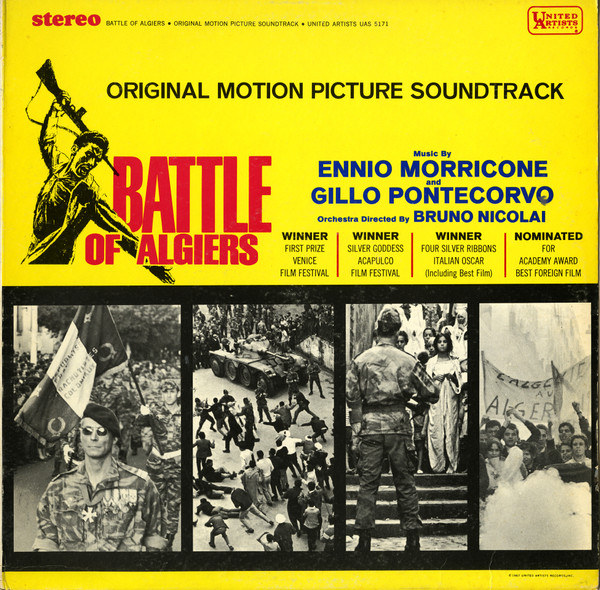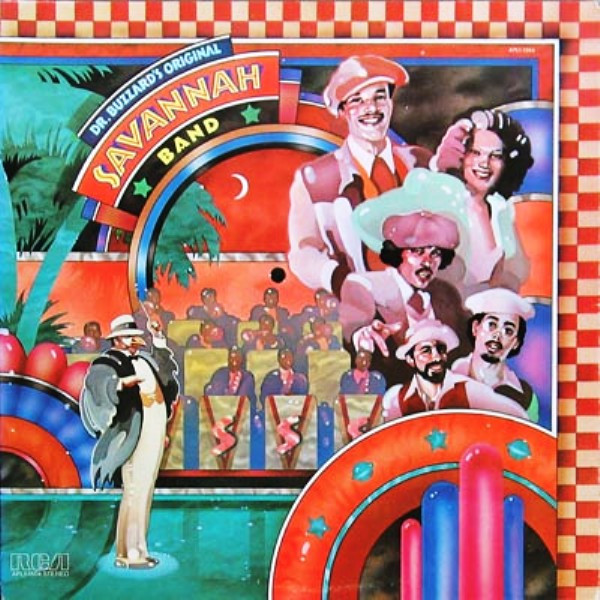Friday, December 12, 2025
127. Triad
The Byrds: The Notorious Byrd Brothers - unreleased (Columbia, 1968);
composed by David Crosby
For better or worse, there was probably nobody who believed in hippiedom more than David Crosby. He also exemplified how it differed from other forms of alternative culture before and since - some of the more visionary genuinely thought they were closer to some kind of future normal than the straight world in its fatal contradictions could possibly remain. Except that fatal contradictions are, in Brecht’s terminology, how mankind stays alive, if you can call it that. This track was recorded for the Byrds’ last great album just before they kicked him out for being an arrogant asshole (ultimately, he agreed with that assessment) and it would have added an even spacier dynamic to the cross-faded spacy masterpiece that Roger McGuinn fashioned out of what was left when they dropped this song (and Crosby gave it to Jefferson Airplane). Ostensibly, the song is about a threesome. More to the point, the song is also about what it might be like if no one was afraid of what they wanted most – not excluding “water brothers,” a now-quaintly archaic term for gay men, and not at all a common or publicly expressed sympathy, even then. An arrogant asshole who truly meant well.
Note: Secular essays about individual songs, each one exactly 200 words long, appearing one per day through Advant and at least semi-regularly until Donald goes away.
Thursday, December 11, 2025
126. Shadowplay
Joy Division: Unknown Pleasures (Factory, 1979);
composed by Ian Curtis, Peter Hook, Stephen Morris, and Bernard Sumner
I rarely speculate on what might have happened if any artist who dies or otherwise absents themselves had not done so – and Ian Curtis might as well be the face on that particular milk carton. Insofar as his collaborators had more than enough juice to reconfigure themselves as New Order, a very different band with a comparable albeit rather more cheerful legacy, Curtis was lucky. But they all were. Each of their two albums signifies in a different and equally plangent way. Depression was Curtis’s great (or primary) subject, but on Closer (too appropriate a title), it defined the parameters and the often almost static spaciness of the music, while Curtis’s disinclination to sing on key ever again squared the circle. On the debut Unknown Pleasures, however, music and topic collided at steeper angles. This track might be the most rocked-out thing they ever recorded, but in a way unique to them and their weird-ass producer Martin Hannett: tension, dynamic shifts, and dead space delineated by bass and skeletal drums, setting up infusions of almost orchestral guitar noise alternating with a creepy single-note figure answering Curtis’s grim ruminations. Can depression actually sound cheerful? No, but it sure can be precise.
Note: Secular essays about individual songs, each one exactly 200 words long, appearing one per day through Advant and at least semi-regularly until Donald goes away.
Wednesday, December 10, 2025
125. Southern Can Is Mine
Blind Sammie (Columbia 14632-D, 1931 – b/w “Broke Down Engine Blues”);
composed by William Samuel McTier (a/k/a Blind Willie McTell)
I have no ready rationale for writing about a tune so egregiously misogynistic - even by the standards of a century ago - so it becomes more a matter of facing it squarely. The fact that it was written and recorded (twice – for two different labels) by one of the genius performers of that time does not make it less “problematic” (as we say now), because the song also exemplifies McTell’s uniqueness and power: the incredible rhythmic drive and volume he got on a 12-string guitar and the slippery rhythmic counterpoint of his voice. So why not just write about “Statesboro Blues”? Because it is tantalizing to wonder how McTell’s light tenor could make lyrics about threatening to beat up or pimp out his girlfriend if she holds out on the sex, which also sounds distinctly unpleasant (and for those just joining us, “southern can” = ass), sound almost . . . cute. Not that actual cuteness is in play, but even at his darkest McTell always sounded fun - like the thought of forbidden pleasures mattered most. In contrast, Skip James’ falsetto would have made these lyrics pitiless and bloodcurdling – he would have meant them and sounded like it.
Note: Secular essays about individual songs, each one exactly 200 words long, appearing one per day through Advant and at least semi-regularly until Donald goes away.
Tuesday, December 9, 2025
124. Le Torture
Ennio Morricone & Gillo Pontecorvo: La Battaglia di Algeri (RCA Italiana, 1966);
composed by Ennio Morricone
What do you do with the parts that wrench the narrative out of shape, but refuse to be left out? Pontecorvo’s docudrama about France’s protracted exit from a colony many of them had considered a départment de la République has two essentials. One – comprising 99% of the film’s length – is the military victory of the Algerian insurgency, for which operations in the capital are emblematic of the wider war. The other essential is the fact that the French were hideously torturing Algerian prisoners which may have broken the French as certainly as the FLN did. Torture was so typical of colonial administrations that there might not have been reason to raise the issue had the Nazis not then-recently had the temerity to visit colonial methods upon other Europeans, which was only part of how that cataclysm made colonialism too costly. (Alternatively, the Argentine military reportedly used this film to prepare a counter-insurgency against its own citizens.) Morricone’s great soundtrack comprises a delirious martial frenzy for most of the film, until a montage at the end with no dialogue or other source audio – just images of bound prisoners being blowtorched and electrocuted, accompanied by a perfectly forlorn and bizarre organ chorale.
Note: Secular essays about individual songs, each one exactly 200 words long, appearing one per day through Advant and at least semi-regularly until Donald goes away.
Monday, December 8, 2025
123. Rubber Biscuit
The Chips (Josie 803, 1956 – b/w “Oh, My Darlin'”);
composed by Charles Johnson, Nathaniel Epps, Paul Fulton, Sammy Strain, and Shedrick Lincoln
This song is best remembered today as Dan Aykroyd’s feature with the Blues Brothers, but if Aykroyd’s relative subtlety set off Belushi, then the original version of this makes Aykroyd’s seem like a sack of doorknobs. The song is a novelty number featuring a lead scatting nonsense syllables over an uptempo harmony group who all come to a periodic halt for the same lead to deliver a series of giggling gnomic jokes about being broke and hungry. What makes it absolutely brilliant is what the Bros left out – the feather-light timing. One rap goes: “The other day I ate a ricochet biscuit. Well, it’s the kind of a biscuit that's supposed to bounce off the wall back in your mouth. If it don't bounce back – [sobs] – you go hungry!” On the Chips record, the sobs between those phrases are a weird airburst lasting a single beat. Then the ensemble comes back a whole beat sooner than you expect them to – like someone pulling your chair out from under you. Some may also remember it playing in Mean Streets when Harvey Keitel’s character is getting quickly wasted in a bar and Scorsese’s camera follows him all the way to the floor.
Note: Secular essays about individual songs, each one exactly 200 words long, appearing one per day through Advant and at least semi-regularly until Donald goes away.
Sunday, December 7, 2025
122. Cherchez La Femme
Dr. Buzzard’s Original “Savannah” Band (RCA Victor, 1976);
composed by Stony Browder Jr. & Thomas August Darnell Browder
There was no better or weirder nostalgia act than this group, because they really meant the nostalgia part – they made it intellectually challenging rather than the revolting pander it became in the mid ‘70s. On this track, their tune is just under three minutes, sandwiched between two-minute-long covers (more like lengthy quotes, but the kind you have to pay royalties for) of “Whispering,” a hit from the ‘20s, and “Se si bon,” from the late ‘40s. The latter decade is how they styled themselves rhythmically as well as sartorially, but they did nothing to conceal the electric instruments and synths – everything just fit together. And it went to number one on the Dance chart for a reason: it may not have sounded up to date rhythmically, but it felt that way, and it made the song hyperconductive – which defines Disco far more succinctly than a uniform 120 beats per minute. Neither was there anything feel-good about the lyrics – sung by the utterly brilliant Cory Daye – which are about various characters (including their manager) coping with general misery by “cherchez la femme.” As in its original sense as a French proverb, this has remarkably little to do with getting laid.
Note: Secular essays about individual songs, each one exactly 200 words long, appearing one per day through Advant and at least semi-regularly until Donald goes away.
Saturday, December 6, 2025
121. Ихесъ (Yikhes)
Belf’s Rumanian Orchestra (Syrena Grand 11079, 1912 – b/w Сихмасъ-Тойре)
I know very little about this group or this record. No one does, and it is not just that we are a century and change apart – this record could have been top of the pops on Krypton. Yet this crackly 78 is so pop in its way, if you get it all the way in your head. They were not actually “Rumanian” – that was a term of art, as was “Bulgar” or “Odessa,” both as those cultures influenced the music over time and as euphemisms for “Jewish” – as was “Klezmer,” a centuries old term loosely translated as “musical instruments.” Yiddish speakers might get more out of the song’s title than Google Translate, which renders it in English (ha!) as “Yikes!” There were any number of very similar Yiddish-speaking dance orchestras around the western part of the pre-WWI Russian empire at the same time, but this one was fortunate enough to be recorded by an enterprising record company in Warsaw, and the records sold well enough for copies to still exist. Although emigres like Abe Schwartz and Naftule Brandwein got Klezmer going over here within a decade, this music is like what jazz might be if someone had recorded Buddy Bolden.
Note: Secular essays about individual songs, each one exactly 200 words long, appearing one per day through Advant and at least semi-regularly until Donald goes away.
Subscribe to:
Comments (Atom)






